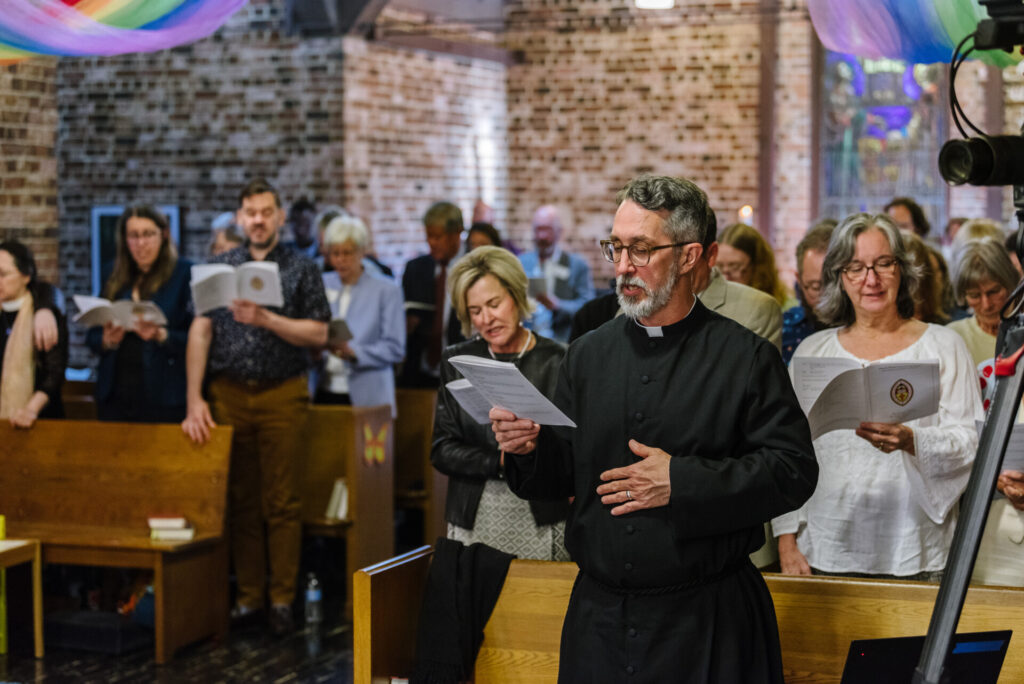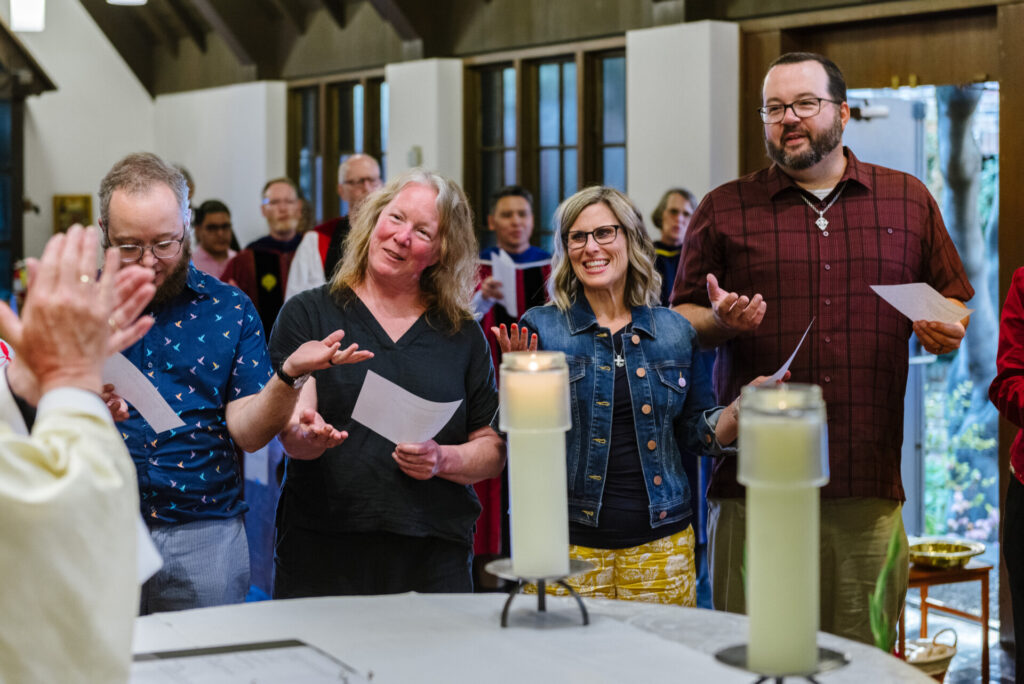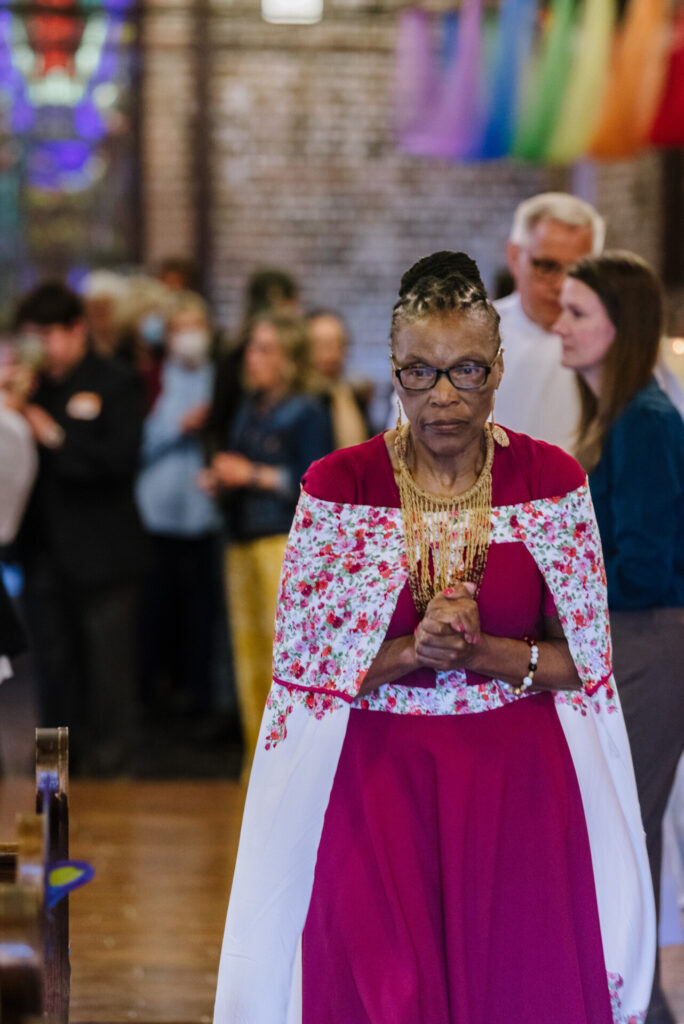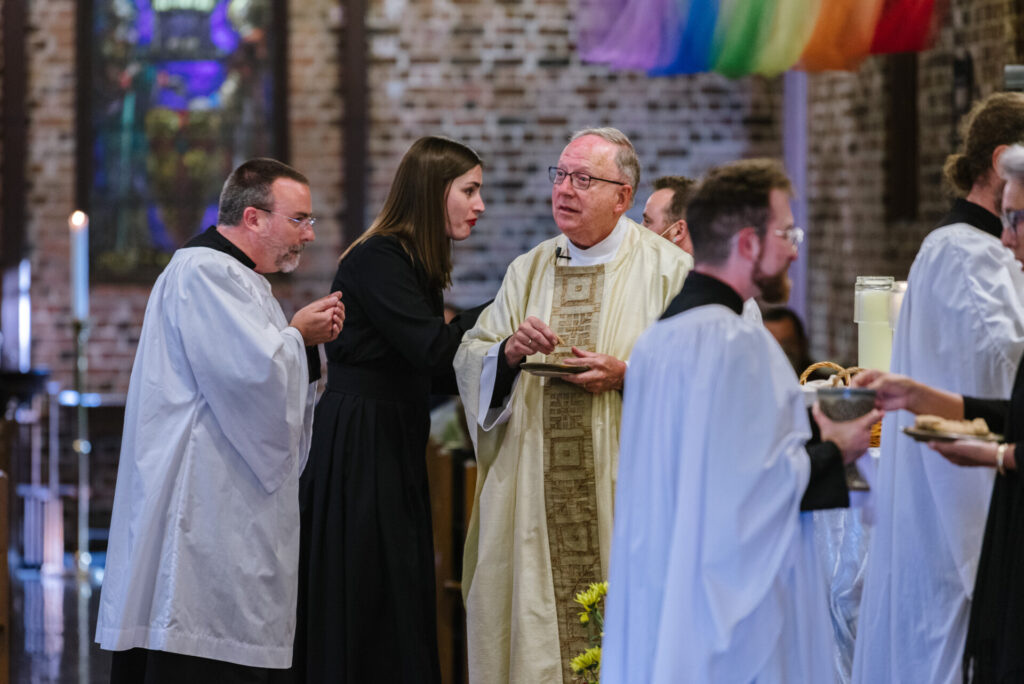Te Paa Daniel to Baccalaureates: ‘We offer ourselves as signs of God in the world’
Dr. Jenny Te Paa Daniel addresses CDSP at the Baccalaureate service on May 19, 2023
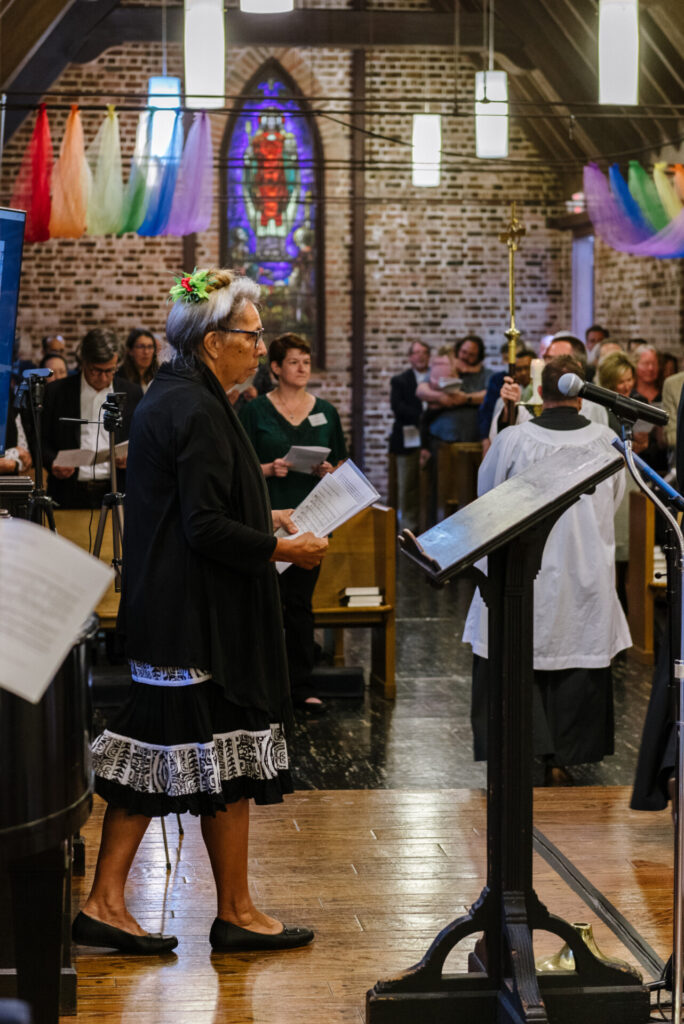
Sisters and brothers, I pray that the God of our Lord Jesus Christ will grant us all a spirit of wisdom, that we may truly know the hope to which we are each being called, from this day forward … Amen
In this very significant end of an era communal moment, I too am feeling overwhelmed by the memories of my times here at CDSP. Always it has been a place of welcome refuge and abundant hospitality, a place for some, of discomforting discernment, and for others its very traditional Anglican ethos remains deservedly as its broad and steady appeal.
To those of you who are our distinguished baccelaureates, those about to graduate – let me say to you that as you prepare now to take your leave of this place of your forming and shaping, of your weeping and laughing, of your struggling and your realising, know you are not alone, for where I have travelled far from to be with you, from where Esther has travelled far from to be with you, so too, there, are those just like you who have with courage and humility, discerned a vocational call to servanthood ministry both lay and ordained.
We recognise that in so doing, many of you have sacrificed so much, including precious time with loved ones. Know only that your decision to follow and to be ‘as’ Christ, places you now in the company of a truly great global cloud of similarly spirit filled servant leaders, all of you now officially ‘qualified’, and blessed and doubtless impatient to be in the world, indeed, to be in the places where human suffering and injustice cry out for radical and redemptive intervention.
In so many ways today’s readings provide an almost perfect parallel backdrop to our situation as disciples and now as witnesses duty bound to act and to speak out for justice and mercy, for hope and for peace, to the ends of the earth.
The content and format of our Eucharistic liturgy similarly reiterates the necessary reminders. None more profoundly in terms of underscoring today’s readings than the words we will shortly say:
“He ascended into heaven and is seated at the right hand of the Father … ”
The earthly life of Jesus thus culminates precisely with the Ascension.
My husband and I, and no doubt a number of you here present, have been to one of the three spots popularly claimed as being the site of the Ascension of Jesus. It is there in today’s occupied Palestine, in what was the old village of Bethany located on the southwestern slopes of the Mount of Olives, across from the Kidron Valley. There is a very modest, now sparse chapel, located within a small Byzantine era church built toward the end of the fourth century. The site was first identified by Constantine’s mother Helena. On the floor is a simple stone slab bearing the imprint of what is said to be Jesus’s right foot.
As with everywhere in the Holy Land there is always an overwhelming sense of awe and privilege, actually a feeling of smallness, when you stand on the land and in many of the places where Jesus was, when you pause to consider the actions he took, the words he spoke, the teachings he implored his disciples to take seriously.
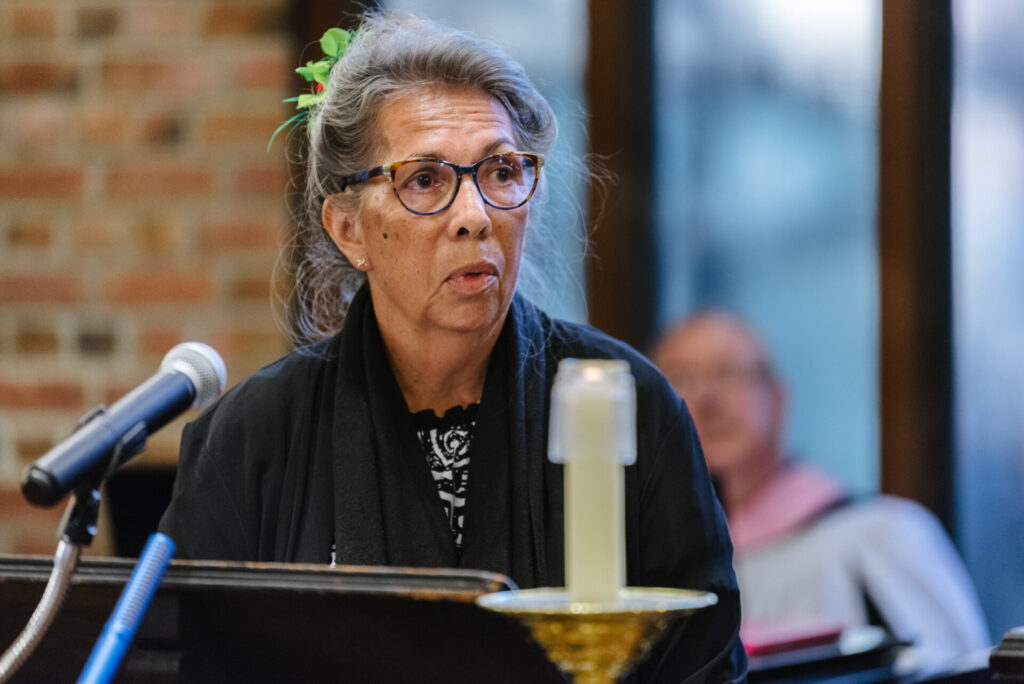
It is all you can do to try within that quite tiny chapel space to imagine the Ascension scene, to imagine what the disciples were feeling, let alone to imagine what we ourselves would do. But for us in this moment it seems to me that what is of paramount importance is to reflect on the two actions Jesus took prior to ascending.
First he announces the gift of the Spirit, and then he blesses his friends. Jesus says to his friends: “I send the promise of the Father upon you.” In this we know he is talking about the Holy Spirit, the Comforter, the one who will accompany them, guide them, support them in their mission and defend them in spiritual battles. Jesus is trying to reassure them he is not about to abandon them, quite the opposite. He ascends to heaven but he does not leave them alone. Rather, precisely by ascending toward God he is ensuring what Pope Francis describes as, ‘the effusion of the Holy Spirit of his Spirit’, or what Archbishop Rowan Williams so eloquently reminds us, “that the human life in which God has made himself most visible, most tangible, disappears from the human world in its former shape and is somehow absorbed into the endless life of God. And our humanity, all of it, goes with Jesus”.
Williams urges us to recognise that right there in Ephesians, ‘the fulness of him who fills all in all’ means Jesus taking into himself all the difficult, resistant, unpleasant bits of our humanity, taking them into the heart of God’s love where alone they can be healed and transfigured.
Let us not forget that Jesus has gone before us into the darkest places of human reality. He has picked up the sounds of suffering. And think of what those sounds are: the barely stifled sobbing of abused children, the anguished tears of women sexually violated; the unending grief of the people of occupied Palestine, the mothers of Ukraine, the wretched agony of the hungry, the forgotten, those excluded – Jesus hears the human beings that nobody else hears. And he calls out to us so clearly, to say, ‘You listen too’.
Instead therefore of remaining beside a few people, Jesus becomes close to all of humanity together with the Holy Spirit.
Here as with the disciples, is where we all receive the power to see—to witness—to proclaim. Here is where we too are changed from being apprentices to baccelaureates — from disciples, who are followers, to apostles, who are leaders. For all of this to happen Jesus knew he needed to get out of the way. If he had stayed around, the disciples would always have depended on his physical presence to tell them what to do. Jesus knew that they, and now we, need instead to rely on prayer, on community, and on God’s Spirit at work within us.
The Holy Spirit makes Jesus present in us, beyond the barriers of time and space, to make us his witnesses in the world. In other words, in the Ascension, Jesus stops being somewhere so that he can instead be everywhere.
I said earlier that there were two actions Jesus took prior to his ascension. The second of these was the blessing of his friends – that beautiful, tender and consummate gesture of love. Precisely as he made his “exodus” to Heaven, Jesus was “making way” for us. He didn’t simply go away, instead he went deeper into the heart of reality, of our human reality and of God’s.
We are thus challenged to offer ourselves as signs of God in the world, to live and speak and act in such a way that our faith becomes also as a beacon of light and a source of comfort to those in greatest need. To those who would say and who do say there is no God in the world where such evil is flourishing and where human suffering is so rampant we must be bold to acknowledge the reality and to resent it deeply. And then as Christians we must also dare to say we are willing to bring hope through our courage in speaking truth to power, by our willingness to show compassion in the face of hatred, by our determination to serve in those places of greatest human need.
Through the Ascension experience we have been blessed with a relationship with Jesus that does not depend on being able to see him and speak with him as with the disciples. Rather he has created for us a relationship which enables us to turn in complete trust to God as father, in the same way Jesus did and thus to be able to respond to the unending demands and needs of the world with even just a modest portion of Jesus’s boundless compassion, his transfiguring energy, his audacious courage, his loving embrace.
My sisters and brothers we can, we will, we must, be witnesses of all these things, as we have been bid – our baptism mandates that it be so. Amen.
